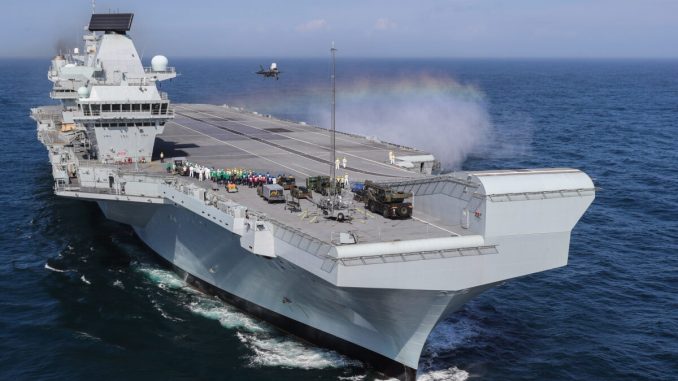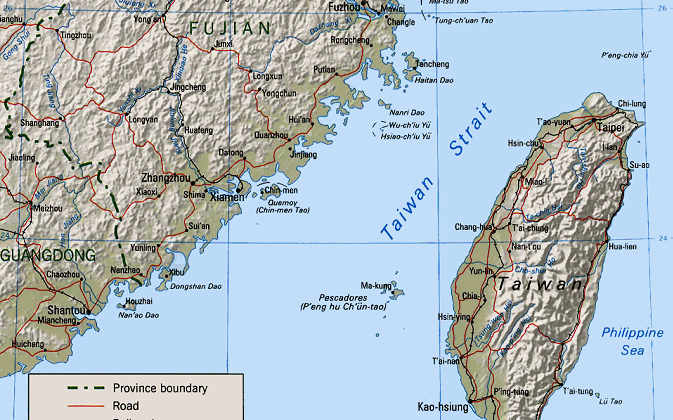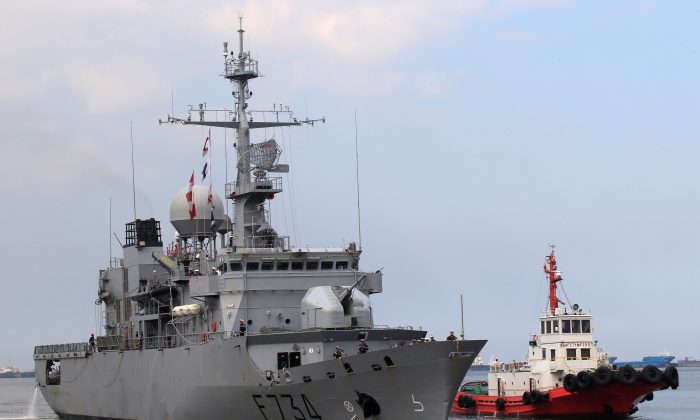
The UK should send its aircraft carrier through the Taiwan Strait amid increasing tension in the area, according to some British MPs. However, experts have mixed views on how significant the gesture would be.
A British carrier is set to be deployed late next month to the Indo-Pacific region as part of a UK-led freedom of navigation operation. The long-anticipated voyage has been heralded as a warning against Beijing’s bullying of its neighbours in the South China Sea.
Robert Clark, a defence researcher at the Henry Jackson Society (HJS), said that the strategic messaging the carrier will send by going to the South China Sea is important.
If the Chinese regime is allowed to further its claims in areas such as the Spratly Islands and the Paracel Islands, “it will only further embolden them to go further and farther afield into the third island chain, for instance, which includes U.S. and British territory,” Clark told The Epoch Times, adding that it would give Beijing the ability to shut down important sea lanes, “which the entire global economy really rest upon.”
Beijing has stepped up military activity near Taiwan recently, as it tries to force the government in Taipei to accept Beijing’s claims of sovereignty.
Tobias Ellwood, chairman of the UK’s Defence Select Committee, and former Conservative leader Sir Iain Duncan Smith told The Telegraph that they think the Carrier Strike Group—led by the UK’s HMS Queen Elizabeth—should sail through Taiwan Strait on its way to Japan.
Ellwood said that it would otherwise diminish the purpose of the operation, which “is to stand up to the authoritarianism of China.”

James Rogers, co-founder and director of research at think tank the Council on Geostrategy, said he believes that Taiwan is less of an area of contention.
The South China Sea “is where China has made a number of illegitimate and unlawful claims, both in relation to various fake and artificial islands China has built on coral atolls, but also this establishment of a so-called ‘strait baselines’ around a number of existing Chinese islands to extend the perimeter of China’s maritime claims which are not considered to be legitimate by the international community through the UNCLOS agreements,” Rogers told The Epoch Times, referring to the United Nations Convention on the Law of the Sea.
“That is where the area of contention is, and where the freedom of navigation must be upheld. In other areas, it is less contested. So it depends on perspective,” he added.
According to The Telegraph, HMS Queen Elizabeth will “steer clear” of the Taiwan Strait to avoid provoking the Chinese regime, although this has not been confirmed by the Ministry of Defence.

Clark told The Epoch Times that the UK remains “purposefully ambiguous regarding the Taiwan question” to maintain leverage.
He said that going through the Taiwan Strait would be an “overt political message of support,” but it’s a message the UK should send.
“There is no legitimate reason why the UK can’t do this,” Clark told The Epoch Times on Friday. “And really, it should, in the face of increased Chinese belligerents towards Taiwan.”
Clark said that the Chinese regime continually seeks to dictate in the maritime domain, such as the South China Sea, the East China Sea, and increasingly into the South Pacific.
“Taiwan Strait is actually [a] part of the South China Sea. It’s an extension of that belligerent Chinese behaviour, where it feels that it can pretty much do what he pleases,” Clark says.
“And this is a sizable and significant way that the UK-led Carrier Strike Group can actually counter that, and mitigate it, and really … hold Chinese actions to account a bit more than just continually allowing them to almost bully and dominate its regional partners, including Taiwan.”

HMS wouldn’t be the first warship to go through Taiwan Strait if it is to do so. French frigate Vendemiaire has passed through the strait in April 2019.
As a result of the passage, France was uninvited to a naval parade to mark the 70 years since the founding of China’s Navy, and Beijing said it made “stern representations” with France for what it called an “illegal” passage.
Clark said that the precedent has made it easier if the UK opt to make the move, and there’s plenty of international waters between the Exclusive Economic Zone for Taiwan and China, where “the Carrier Strike Group can transit through legally and justifiably under the UN convention law, the Law of the Sea.”
However, Clark also recognised that passing through the Taiwan Strait will trigger a Chinese reaction, which he said he couldn’t speculate, and that it’s hard to say how welcoming Taiwan would be to the idea.
“That’s something that the UK has got to seriously think about if they did go through the Taiwan Strait, and obviously communicate that well in advance with Taiwan, in order to mitigate the potential Chinese backlash against both the UK and Taiwan,” he said.
Besides Vendemiaire, two Royal Canadian Navy ships also sailed through the Taiwan Strait on June 18, 2019.
Gray Sergeant, a China expert from the HJS, said that apart from sending a warship through Taiwan Strait, a move which he considers to be largely irrelevant, there are other ways for the UK to help Taiwan.
“The UK and its allies should be working to reduce Taiwan’s diplomatic isolation and help make the country’s economy more resilient. In this respect, the precise route of the HMS Queen Elizabeth is neither here nor there,” Sergeant said on Monday in an email to The Epoch Time.
He said that efforts would be better spent supporting Taiwan’s bid to join the Comprehensive and Progressive Agreement for Trans-Pacific Partnership, “as this would help Taiwan reduce its dependency on China for trade, which in turn would weaken Beijing’s ability to economically punish or coerce the Taiwanese people.”
Reuters contributed to this report.






Be the first to comment